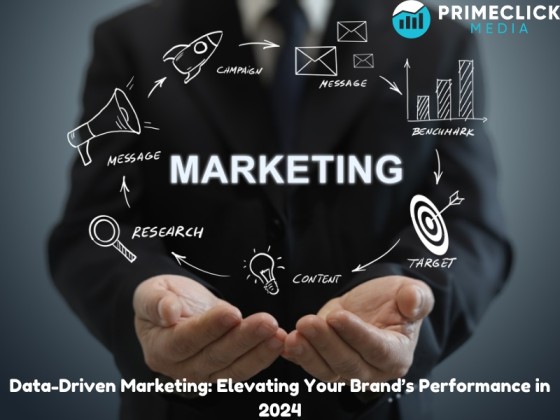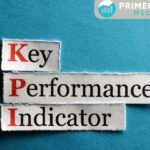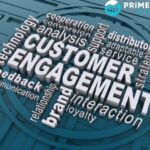Brand leaders have to be very ahead of the curve in 2024. Data-driven marketing is good for enhancing performance. All decisions are made with data, and this perfects the strategies of the company. This approach does not only target the right audience but also guarantees better results.
What is Data-Driven Marketing?
Data-driven marketing is the use of data to make better decisions. It involves gathering statistics and analyzing them for targeted campaigns. This technique allows marketers to know their target audiences. With that, brands can provide more personalised experiences. By doing so, businesses maximise their marketing efforts.
The Role of Data in 2024 Marketing
Data will play a much more critical role than before in 2024. Technology makes it easier to collect and analyse large amounts of data. Therefore, Business entities can track customer behaviours and choices. Data also enables firms to predict trends as well as what would be needed in future. Thus, the reason behind focusing on data-driven strategies is to stay competitive for brands.
Benefits of Data-Driven Marketing
There are some benefits of data-driven marketing, starting with better targeting. Marketers don’t guess; they use data to speak to the right audience. It increases personalization. However, customers like content that seems more tailored to them. This will then help boost engagement and conversion rates. More importantly, it enhances campaign performance. Using insights gained from data, marketers are in a better position to make strategies better.
Personalization Leads to Higher Engagement
Personalization is the means to reach customers in 2024. Data enables brands to craft content which speaks to the subject. When customers are being valued, then it opens up the opportunity for more engagements. For example, email campaigns are promoted to have higher open rates with content that is personalized. Moreover, personalization fosters customer loyalty.
Improved ROI with Data-Driven Marketing
One of the greatest benefits that one gets from data-driven marketing is the fact that their return on investment will be more rewarding. Since the brand concentrates on the right audience, waste effort is reduced. That makes campaigns cost-effective. Moreover, marketers can track the performance of their campaigns with the help of data. With information on the way the campaign went, marketers may change the course and tailor their strategies for optimum performance.
How to Implement Data-Driven Marketing?
Collecting data and marketing starts with it. Brands can find this on social media, websites, and engagement with customers. However, the critical function would be to analyse it appropriately. This is where the digital tool comes in. For example, Google Ads in Nigeria can offer important information on how the customer behaves. Using such tools helps brands make relevant decisions and introduces more effective campaigns.
Role of Digital Agencies in Data-Driven Marketing
It can be quite easy for brands to make data-driven marketing when using a digital advertising agency in Nigeria. The agencies know how to collate and analyse the data, and they help brands develop targeted campaigns based on data insights. Companies can focus on what matters while partnering with a digital marketing agency in Nigeria by letting experts analyse the data.
Why Data-Driven Marketing is Important for Nigerian Brands?
The Nigerian digital market is ever-expanding. It is a saturated market, and brands are identified through their data-driven marketing strategies. Therefore, digital marketing in Nigeria is becoming more saturated, and companies need to be ahead of everyone else. Data-driven marketing provides them with that edge. However, understanding customer preferences in Nigeria will give brands the chance to create campaigns that resonate more with the targeted audience. Besides this, data helps businesses find new opportunities that exist in the market.
Using Google Ads in Data-Driven Marketing
Google Ads is quite a powerful tool for any data-driven marketer. Google Ads gives in-depth insights into customer behaviours. Brands can use these insights to improve their ad campaign. Moreover, Google Ads in Nigeria also provides some options for specific audience targeting, so using these features, brands can be assured that their ads reach their appropriate audience, increasing chances of conversion and ROI.
Challenges of Data-Driven Marketing
While data-driven marketing offers numerous benefits, it also poses a challenge. The first big challenge is data privacy. Brands need to ensure they are using data responsibly. Additionally, data will be so voluminous that firms need appropriate tools and human expertise to make sense of all of it. However, by employing experts, businesses can bridge all these gaps and be okay.
The Future of Data-Driven Marketing in Nigeria
The future of data-driven marketing is bright, especially in Nigeria, and bound to improve any brand’s performance with this. Data will continue to play a very significant role in guiding the development of marketing strategies going forward. In that regard, businesses should be investing in the correct tools and talent that leverage their available data. Beyond that, working with a digital advertising agency in Nigeria can give brands an edge.
Conclusion
Data-driven marketing has come up as the success mantra for every brand to move forward in 2024. Use data to create campaigns that are perfectly personalised to engage your audience. The approach helps better targeting and improve ROI and overall performance. Data-driven strategies can be extremely useful for digital advertising in Nigeria. As digital marketing activity continues to grow in Nigeria, data will play a very vital role. Brands must invest in the right tools and partnerships to stay ahead. Adopt data-driven marketing and let your brand take its performance to a new level in 2024.





